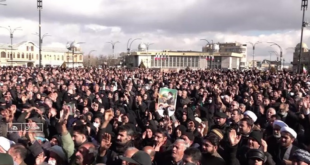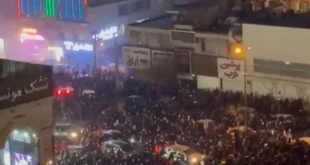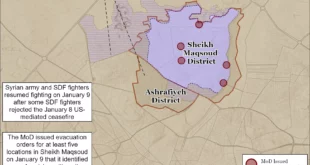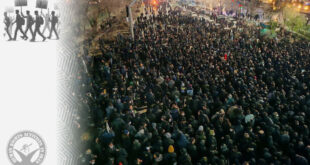 Iranian President Mahmoud Ahmadinejad is turning to South American nations who are embracing him as an energy and trade partner and counterweight to US influence. On the heels of a UN General Assembly appearance, Ahmadinejad was headed to Bolivia on Thursday to establish first-time diplomatic relations with the Andean nation.
Iranian President Mahmoud Ahmadinejad is turning to South American nations who are embracing him as an energy and trade partner and counterweight to US influence. On the heels of a UN General Assembly appearance, Ahmadinejad was headed to Bolivia on Thursday to establish first-time diplomatic relations with the Andean nation.
He and President Evo Morales were expected to sign accords that Bolivian officials say could help them better tap the continent’s second-largest natural gas reserves after Venezuela’s and drum up urgently needed agricultural investment.
Ahmadinejad then heads to Caracas to meet Venezuelan leader Hugo Chavez, who has defended Iran’s peaceful nuclear program and activities.
Ahmadinejad’s trip south underscores his strengthening links to Latin American nations that also include Nicaragua and Ecuador despite the United States’ failed efforts to isolate him internationally.
“It’s a connection that is growing stronger all the time,” said Alberto Garrido, a Venezuelan writer and political analyst. “It’s Iran’s answer to the United States on its own home turf. The United States is in the Middle East, so Iran is in Latin America.”
By opening diplomatic ties, Iran and Morales’ “anti-imperialist” administration appear to be on the same political page.
The growing closeness between Iran and Chavez-allied governments is viewed with alarm by Washington, which calls Iran a sponsor of terrorism.
Bolivian Vice President Alvaro Garcia says the two nations simply want to build commercial ties.
Bolivia is forging “diplomatic relations with Iran to improve the country’s economic situation, not to hurt or offend anyone,” Garcia said while Morales was in New York this week at the UN
Bolivia exported nothing to Iran between 2000 and 2006, and Iranian exports to Bolivia totaled just $10 million last year, according to government statistics, down from $24 million a year earlier.
Meanwhile, ties between Caracas and Tehran are strong and growing. Iran and Venezuela have signed more than 180 trade agreements since 2001, worth more than $20 billion in potential investment between the two.
Ecuadorean President Rafael Correa also wants closer ties with Tehran, and Iran’s Press TV reported last month that Iran will for the first time open an embassy in Quito.
President Daniel Ortega of Nicaragua last month accepted promised Iranian aid of funding for 4,000 tractors, milk-processing plants, 10,000 houses, piers and the construction of a farm equipment assembly plant. In exchange, Nicaragua agreed to export coffee, meat and bananas to Iran.
Chavez is a vocal defender of Iran’s nuclear program, accusing the United States of trumping up unfounded concerns about possible nuclear weapons as a pretext to attack a regime it opposes.
“Iran isn’t making an atomic bomb, not at all,” Chavez said Monday. “They just want to develop nuclear energy. Venezuela will do it also some day.”
 Eurasia Press & News
Eurasia Press & News



